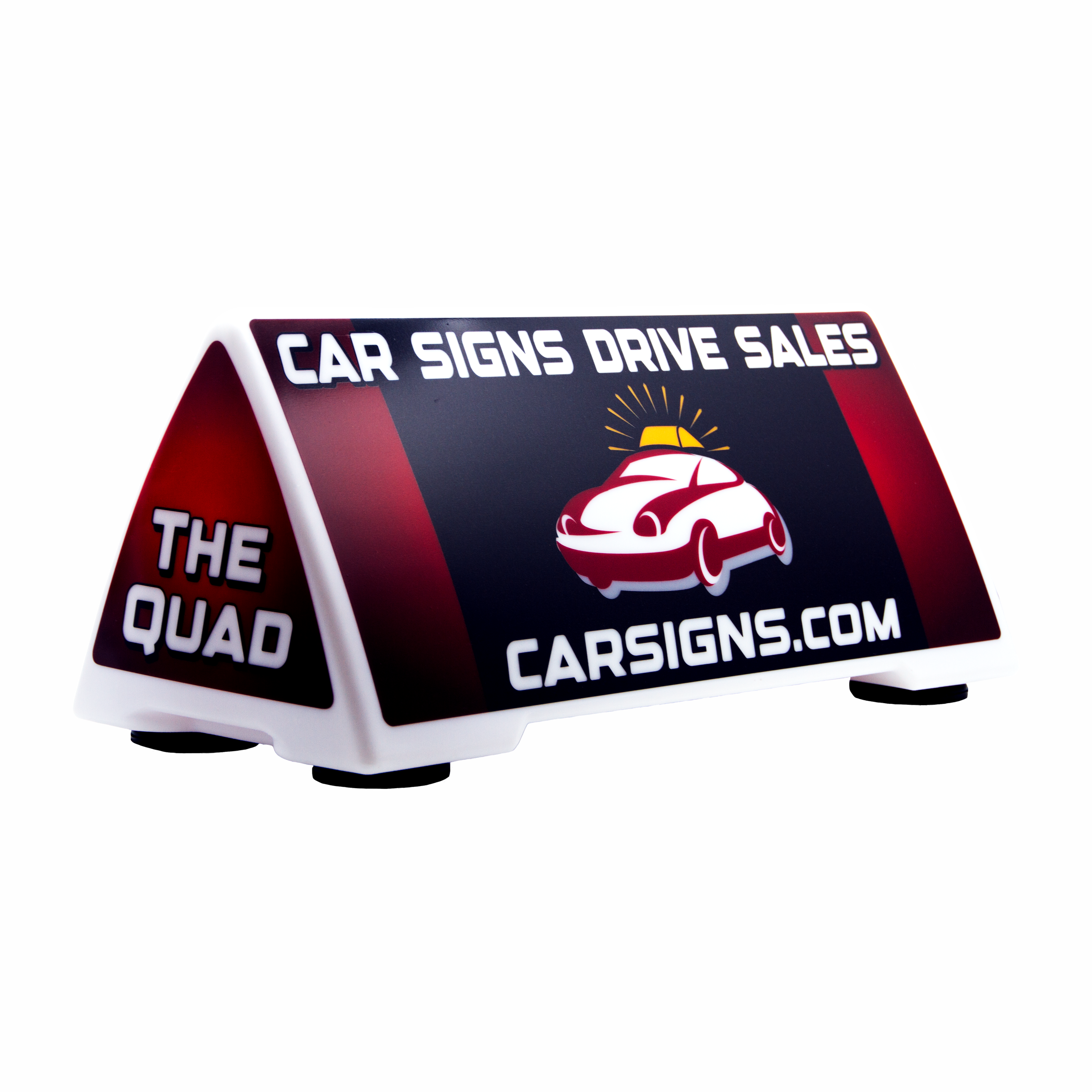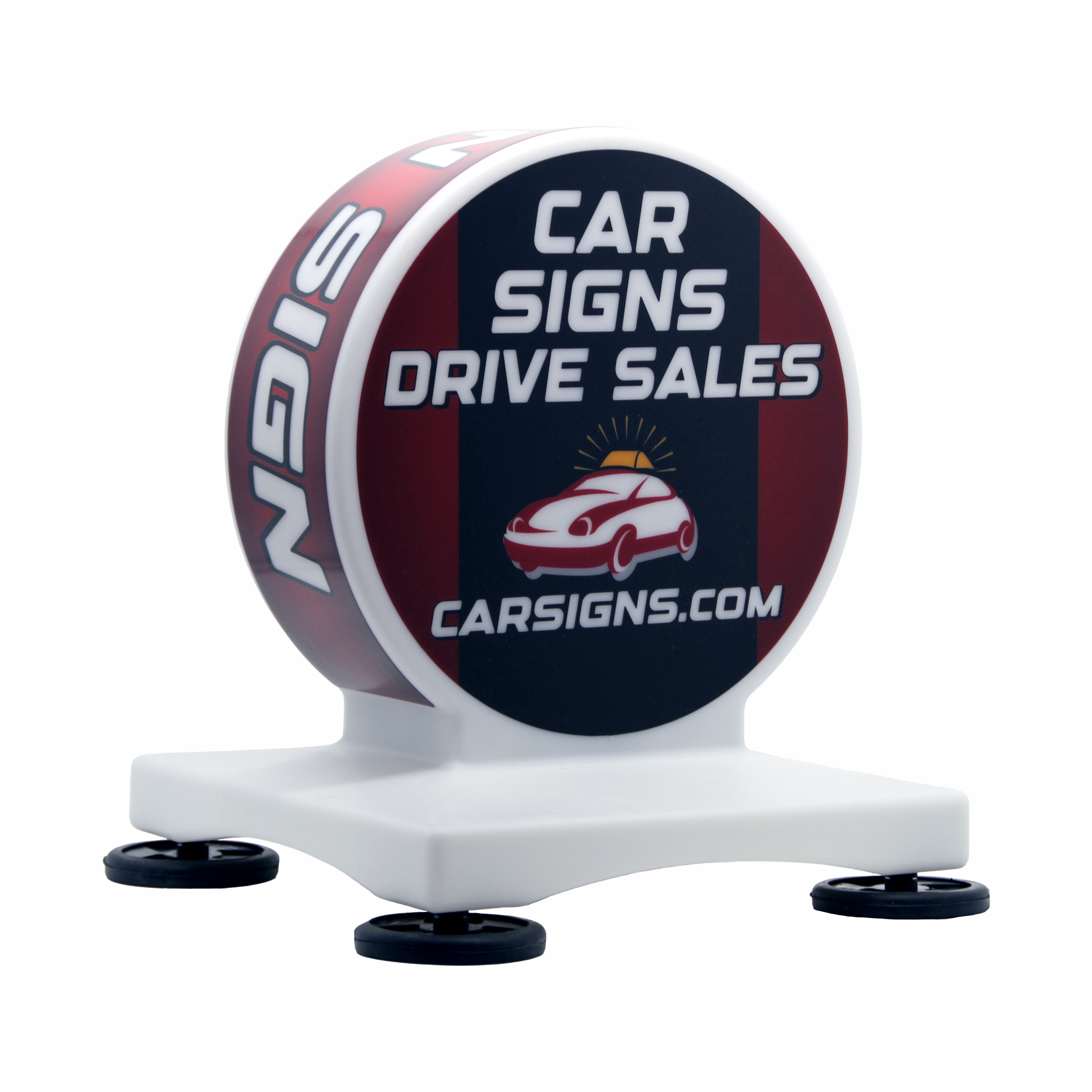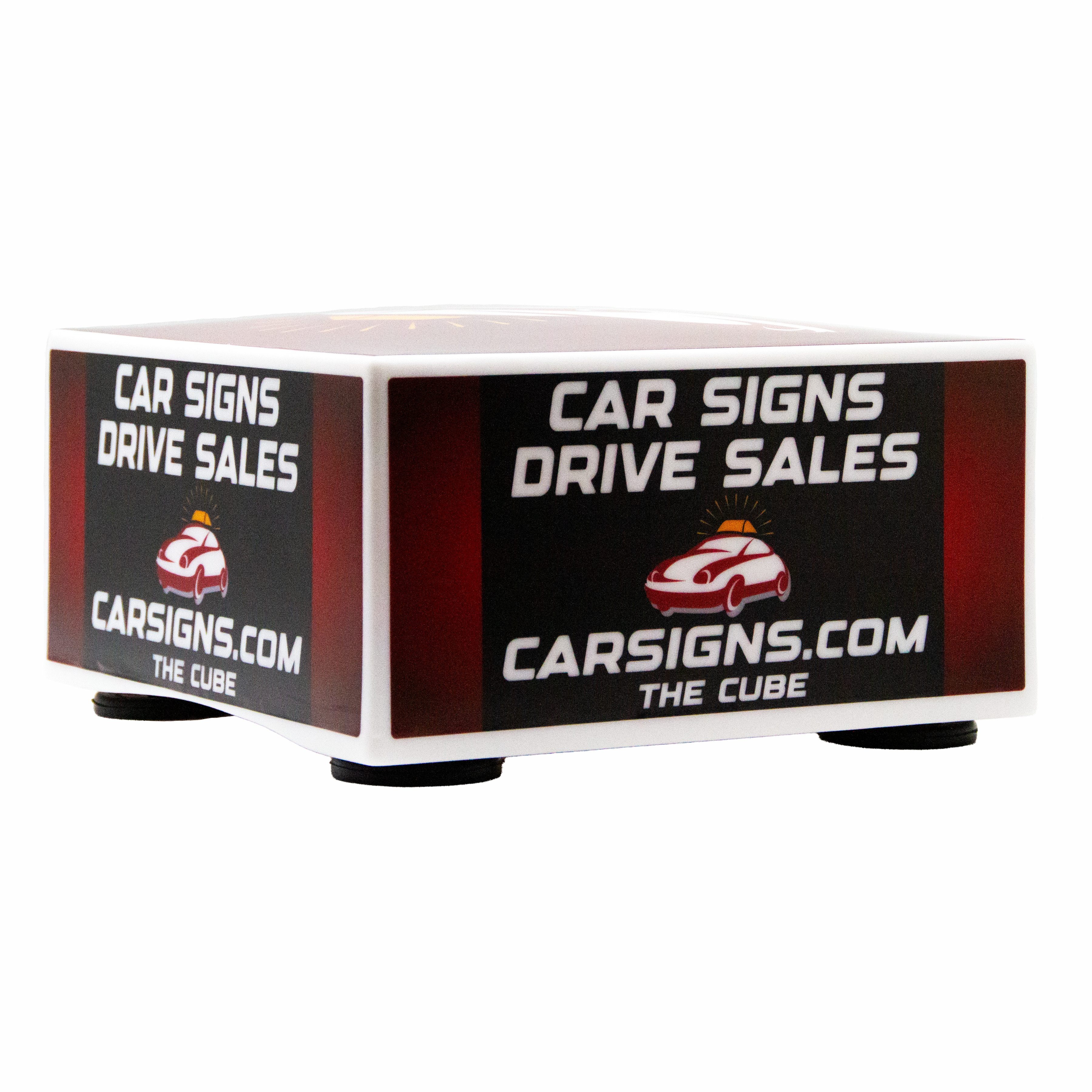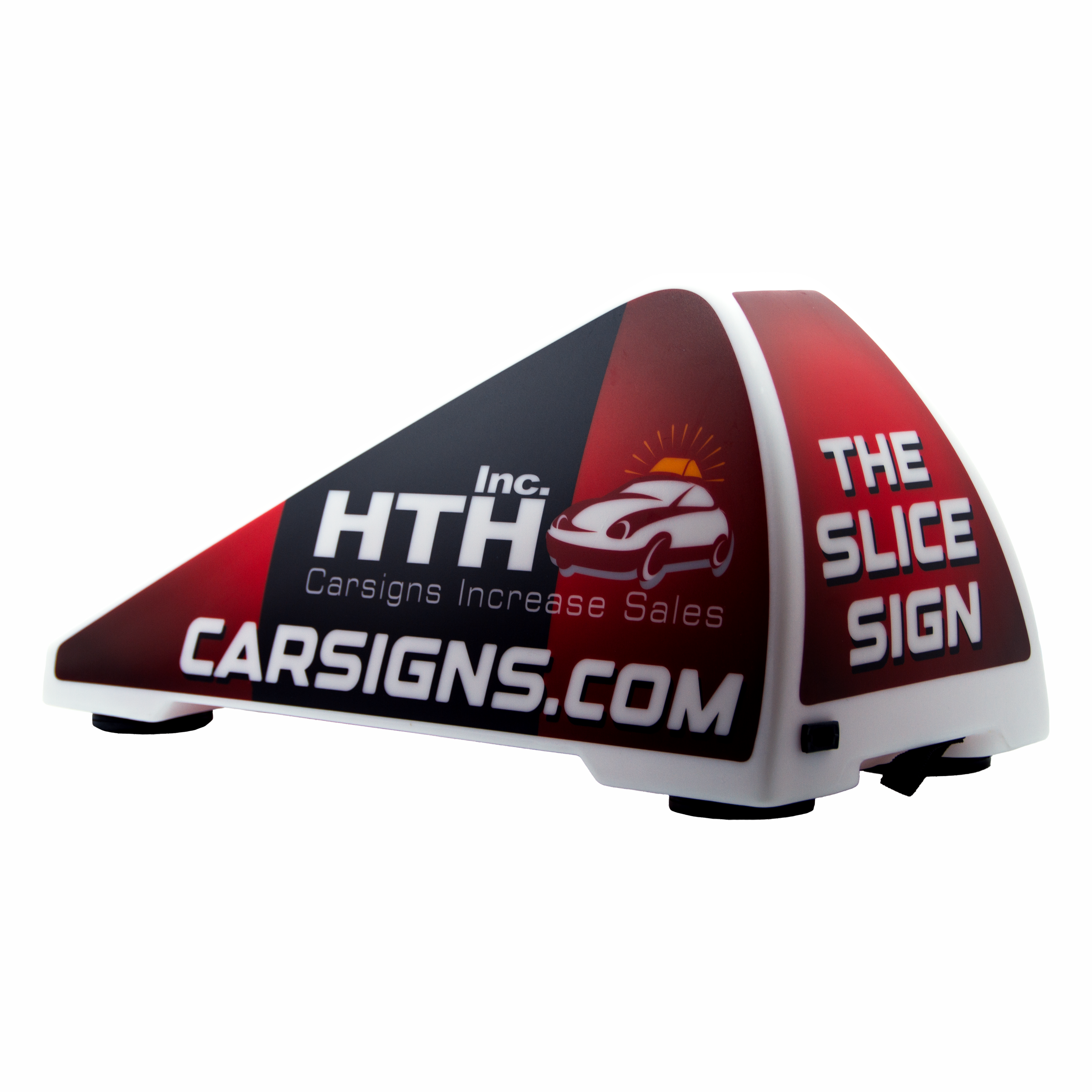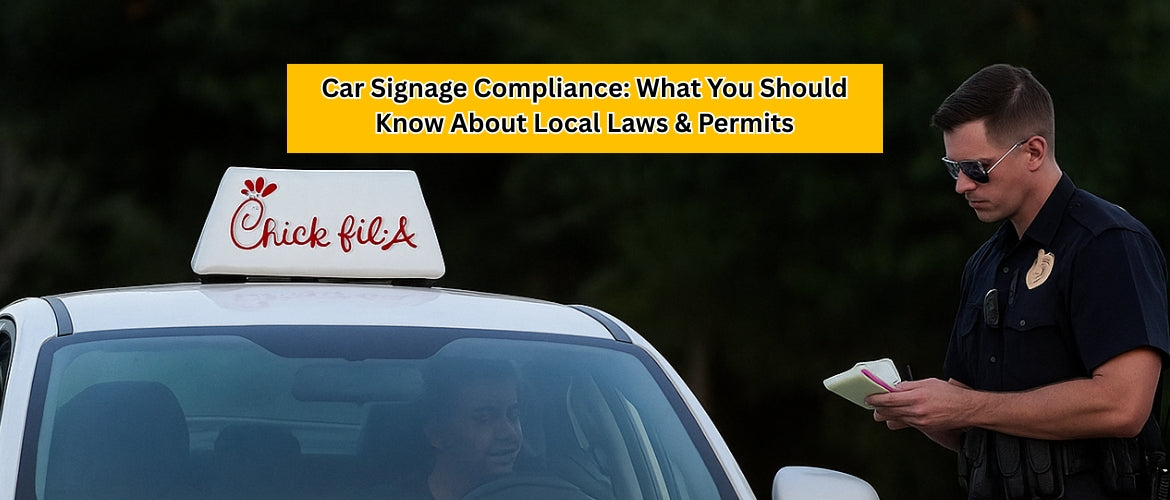
Car Signage Compliance: What You Should Know About Local Laws & Permits
As businesses increasingly harness the power of mobile advertising, car signage has become an essential marketing tool. However, before turning your vehicle into a moving billboard, it's crucial to understand that your signage must comply with local laws and regulations. A misstep could lead to costly penalties or even removal of your advertising. In this guide, we'll cover everything you need to know about car signage compliance, including local rules, permit requirements, and how to ensure your advertising stays within the law.
Why Complying With Car Signage Laws Matters
Non-compliance with vehicle signage regulations can lead to fines, forced removal of signs, or business license complications. Additionally, adhering to local laws protects your brand reputation and keeps your employees—and the public—safe from hazards created by poorly installed or illegal signage.
Typical Local Rules Governing Car Signage
Car signage laws vary by city, municipality, and even by homeowner associations. Here are some of the most common areas regulated:
- Size Restrictions: Many jurisdictions set limits on how large your car sign can be, especially on windows and windshields, to avoid visibility blockages.
- Content Guidelines: Some areas restrict certain types of advertising content, such as explicit imagery, certain language, or political messages. Always review content laws for your region.
- Type of Signage: Removable magnetic signs, permanent vinyl wraps, and perforated window decals may be subject to different regulations.
- Lighting and Reflective Materials: Adding lights or reflective wraps can be heavily regulated to prevent distractions for other drivers.
- Operating Areas: Some cities have “no advertising vehicle” zones such as historical districts or residential communities.
Permits: When Do You Need One?
In some areas, simply adding your company’s name and contact info to your vehicle is allowed. In others, any commercial signage on a private vehicle requires a permit—especially for larger graphics or commercial fleets. Contact your local department of transportation or business licensing office to determine whether you need a permit for your car signage.
- If you operate a commercial fleet, expect stricter rules and more required paperwork.
- Check regulations not only in your business’s home city but also in any neighboring cities or counties where your vehicles may regularly operate.
- Keep a copy of your permit (if required) in the vehicle along with registration and insurance documents.
Key Compliance Tips for Legal Car Signage
-
Research local, state, and HOA guidelines: Always consult your city or municipality’s website for vehicle advertising rules. Don’t forget to ask your property management or HOA if you regularly park in a regulated lot or neighborhood.
2. Use approved materials: Some areas may require that only non-reflective or removable signage is used. Make sure your materials, such as those from HTH Car Signs, meet local specifications.
3. Follow size and placement rules: Avoid covering license plates, headlights, or more than a certain percentage of your windows. Window signage is often the most regulated.
4. Keep information updated: Remove or update expired content or outdated contact info; outdated signage can still be subject to fines.
5. Store permits and documentation: Always keep proof of compliance in the vehicle.
Common Mistakes That Lead to Penalties
- Obstructing Driver’s View: Placing decals or magnetic signs on the windshield or front side windows.
- Blocking Plates or Lights: Any cover that impairs the function or visibility of your license plate, tail lights, or headlights.
- Non-compliant Reflective Materials: Using reflective film or lighting in areas where it’s not allowed.
- Advertising in Restricted Areas: Parking an advertising vehicle overnight in residential-only zones without the right permit.
- Neglecting to Renew Permits: Forgetting to update or renew your car signage permits on time.
How to Get Started Legally With Car Signage
- Contact your city’s transportation or business licensing department to request information on vehicle advertising.
- Work only with professional installers, like HTH Car Signs, who are familiar with local compliance requirements.
- Design your signage with laws in mind—no text too small, no distracting animations or flashing lights, and no prohibited content.
- Take photos of your finished vehicle and keep all design specs and approval documents on file, should you need to show proof of compliance.
Conclusion: Proactive Compliance Protects Your Business
Vehicle advertising is a highly effective way to reach new customers wherever you go, but legal compliance is a must. Take the time to research local laws, secure permits, and work with trusted brands like HTH Car Signs for peace of mind. This proactive approach not only prevents penalties but also ensures your mobile advertising builds brand trust instead of risking your reputation.
FAQs:
- 1. Do all cities regulate car signage?
- No, rules vary. Some cities have strict regulations; others have minimal or no restrictions. Always check your local authority’s website.
- 2. Is a permit required for small magnetic decals?
- Not always, but some areas require permits even for small or temporary signs. Check with your local business office to be sure.
- 3. Can car signage cover my windows?
- Most locations prohibit blocking the driver’s view. Some allow limited coverage with perforated or transparent materials, but sizable restrictions may apply.
- 4. What happens if I use prohibited content in my signage?
- Penalties can include fines, required removal of the signage, or even loss of your business permit in repeat offenses.
- 5. Can I use lights or neon on my car signs?
- Usually prohibited by law, as they can cause distractions or safety hazards for other drivers. Check your jurisdiction’s rules for exceptions.
- 6. Are rules different for personal vs. commercial vehicles?
- Yes, commercial vehicles often face stricter signage rules and usually require more documentation and permits.
- 7. What if I operate in several cities or states?
- You must comply with the signage regulations in each area where your vehicles operate, not just your home base.
- 8. How do I find out if my HOA has vehicle signage rules?
- Contact your homeowner’s association directly or check your HOA covenants and guidelines for vehicle advertising policies.
- 9. Are certain types of car signage illegal everywhere?
- Yes, covering up license plates or essential safety equipment is universally illegal. Content restrictions may also apply federally for things like hate speech.
- 10. How can I ensure my signage stays compliant in the future?
- Stay updated with local laws, renew permits as needed, and work with professional signage providers familiar with regional regulations.

